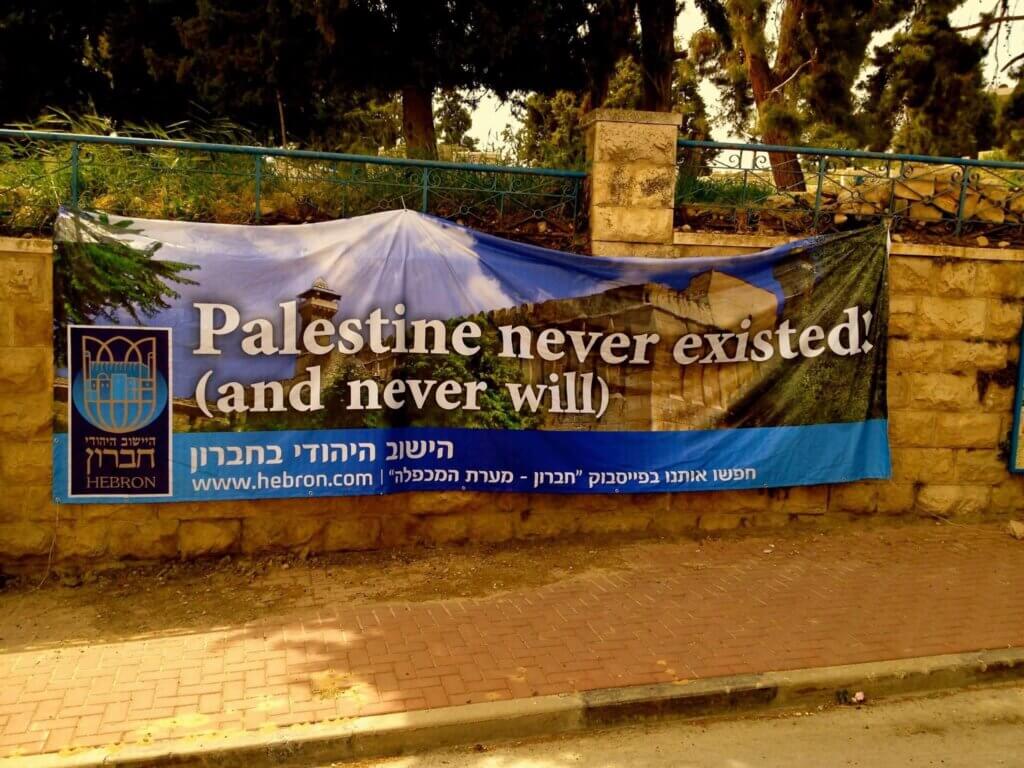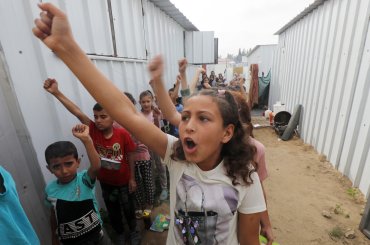Millions of Palestinians worldwide live in forced diaspora and are cut off from their homeland by Israel’s colonial practices and policies. The Zionist movement — and later, Israel — has forcibly displaced more than half of the Palestinian population and in turn has created numerous laws, regulations, and military orders such as the Prevention of Infiltration Law and military orders 1649 and 1650 to prevent Palestinians from returning to their homes and properties. Israel marks Palestinians who try to do so as “infiltrators,” and has deported or even shot at them on sight. Israel has created a privileged colonial status, which in all facets of life, including the political, social, and cultural levels, is superior to that of non-Jewish Palestinians. Whether this system is labeled as apartheid, colonial rule, or Zionist state ideology, it is a manifestation of control and domination of one people over another that leaves no room for alternative interpretation.
However, this colonial grip over all of Historic Palestine and all Palestinians is not enough for the Israeli colonial mindset; it fantasizes about erasing Palestinian identity and history, to simply wipe Palestine off the map. Israel’s state mantra to this day is that Palestinians and Palestine never existed; they were simply scattered groups of people living in the area before 1948, but lacked a homogenous identity or social fabric. Without getting into too much detail to disprove this fictitious claim, which has been debunked repeatedly, Israel’s first Prime Minister and Zionist military commander in 1948, David Ben-Gurion, acknowledged the fact of an existing deep-rooted people by claiming that the new generation of the dispossessed and displaced indigenous population will have forgotten their heritage and belonging to their land, and that Israel needs “to do everything to ensure they [the Palestinian refugees] never do return.”
Rewriting history
Israel has turned every stone, renamed streets, villages, valleys, and hills to reshape its history and present: to erase the Palestinian identity carved into those stones and to create a new Israeli identity in its place. This attempt is often referred to as Judaizing or Hebraizing, and it includes localities, archaeological sites, historical facts, as well as food and culture. In 1969 former Israeli Defense Minister Moshe Dayan unabashedly told a group of university students:
You do not even know the names of these [Palestinian] Arab villages, and I do not blame you, because these geography books no longer exist. Not only do the books not exist, the [Palestinian] Arab villages are not there either. Nahalal arose in the place of Mahalul; Gevat in the place of Jibta; Sarid in the place of Haneifa and Kefar Yehoshua in the place of Tell Shaman. There is not one place built in this country that did not have a former [Palestinian] Arab population.
In Israel’s process of colonizing Palestine, the indigenous population has been divided into three main categories: Palestinians living in the occupied Palestinian territory, Palestinians residing on the Israeli side of the 1949 Armistice Line, and the millions living in forced exile. The map of Palestine depicts the classic colonial principle of “divide and rule” — political and social divisions based on fragmented geography.
The 1948 Nakba was the central fissure that tore apart the social fabric of Palestinian society by cutting off relationships between Palestinians on either side of the Green Line and with the ones forced into diaspora. Israel has maintained this strategy since. Most importantly, Israel erased the term “Palestinian” and labels the Palestinian citizens of Israel as “Israeli-Arabs” — to disconnect them from their own history and ownership of the land, and to reinforce their position as inferior citizens within Israeli society. Israel went even a step further by compartmentalizing that community into Arab Christians, Arab Muslims, Druze, and Bedouins. Fragmentation was applied to the territory occupied in 1967 by categorizing the population according to identity cards that restrict life and movement within the West Bank, East Jerusalem, and the Gaza Strip.
Discriminatory entry regulations
Among the Palestinian diaspora, Israel has divided them based on their host countries. For instance, residents of “enemy states” are prohibited by law from entering Historic Palestine and residents from “friendly” Arab countries are in effect banned from doing so. Palestinian citizens of mainly Western countries were the only group who were able to, but with new discriminatory entry regulations, Israel is trying to close this gap as well to further impede the social fabric of Palestinian society. Last year new regulations codified decades-old practices of intrusive and hours-long questioning that visitors with Palestinian roots have traditionally had to endure. The new regulations also include a new set of limitations, which will even further restrict this group from traveling to their homes and family. These restrictions include a clause requiring giving information regarding any land they may own or anticipate inheriting as well as disclosing personal or family relationships. The 61-page procedure replaced a three-page document which was first drafted in 2006. It sets out the Israeli army’s policy and procedures regarding foreigners who seek to enter the West Bank who must obtain the consent of the “Israeli Coordinator of Government Activities in the Territories (COGAT).”
Most foreign governments have silently accepted Israel’s discriminatory policies to distinguish between their citizens based on Israeli criteria. For example, the German foreign ministry declares on its website that German nationals with even suspected Arabic descent or Islamic religious affiliation must expect an intensive security interrogation and possible refusal of entry, thereby accepting the regulation and warning its citizens of this potential outcome to be free of any responsibility. Furthermore, several embassies have declared that they are unable [and most probably unwilling] to support any citizen in case of an entry denial. Only time will tell if this new policy has the intended effect of making the Palestinian diaspora forget about their homeland.
Today, however, Israel is utterly aware of its unsuccessful attempt to erase Palestinian identity. Even though it was able to erase Palestinian street names, Palestinian buildings, and even Palestinian lives by force, it failed to erase Palestinians’ belonging to their land and history. Palestinian identity continues to grow in the hearts and minds of millions of Palestinians scattered all over the world. Ben-Gurion’s vision lies like a shadow over Israel’s colonial grip, and contrary to its intended meaning, his wish has never materialized as new Palestinian generations are constantly reminded never to forget.



If we’re talking about Israeli colonialism…
https://www.thejc.com/news/israel/benjamin-netanyahu-palestinian-authority-cannot-be-allowed-to-collapse-65nKOpySM6icH9m6HECaXR
“Benjamin Netanyahu has said the Palestinian Authority “cannot be allowed” to collapse.
The Israeli Prime Minister also told a Knesset panel recently that the Palestinians’ desire for an independent state “must be suppressed.” …Netanyahu made the remarks in a closed-door meeting of the Foreign Affairs and Defence Committee chaired by MK Yuli Edelstein of Netanyahu’s Likud party, according to Kan News.”
You can’t get much more colonial than declaring that you need the natives help to run the place, but you’re not going to give them freedom!
The State of Palestine is recognized as an independent illegally occupied State by 138 Countries representing 80% of the world population. Over 50 of these Countries have Embassies, Consulates or Diplomatic Missions on Palestinian soil. The State of Palestine flies its flag over more than 100 Diplomatic Missions hosted on foreign soil and in front of the UN.
Israel can stamp its feet and cover its eyes, but the State of Palestine and the Palestinian people are not going away.